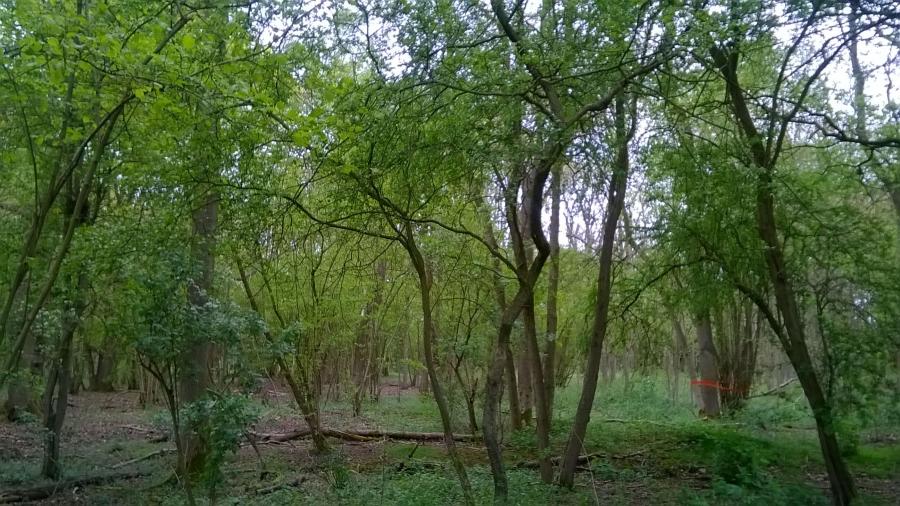
Elia Apostolopoulou PhD, Aristotle University of Thessaloniki, 2009. Dr. Apostolopoulou is a human geographer and a political ecologist. She has held postdoctoral and lectureship positions in the Universities of Cambridge and Oxford and from 2019 to 2022 she has been a Senior Research Fellow in the Cambridge Institute for Sustainability Leadership. Since 2020 she is an editor of Dialogues in Human Geography and in August 2021, she was awarded a 5-year Ramon y Cajal Senior Research Fellowship after ranking 1st in social sciences across Spain. Currently, she is based at ICTA-UAB where she leads the research line Planetary Urban Infrastructures in the Barcelona Lab for Urban Environmental Justice and Sustainability. Elia Apostolopoulou will be teaching Environmental (in)justices and Urban Transformation and supervising thesis this year.
What is your main focus on your research in Planetary Urban Infrastructures developed at ICTA Barcelona right now?
Since 2019, when I was awarded a Global Sustainability Senior Fellowship at the University of Cambridge, a major part of my research has focused on exploring the links between China’s Belt and Road Initiative (BRI), also called the New Silk Road, urban transformation and inequality in a number of cities and countries (Greece, Nepal, Peru, Sri Lanka, UK) across the Global South and North.
The BRI is an exemplar of a new global paradigm of infrastructure-led development that is characterized by the establishment of capital-friendly tradescapes and mega-corridors that are remaking places, natures and livelihoods at a historically unparalleled scale. Other similar key initiatives include G7’s Partnership for Global Infrastructure Investment and European Union’s Global Gateway initiatives. The new research line I am leading at the Barcelona Lab for Urban Environmental Justice and Sustainability (https://www.bcnuej.org/elia-apostolopoulou/) focuses exactly on that and aims to expand this research agenda in a number of places and initiatives across the globe to understand how the combination of large-scale infrastructure with industrial projects and major investments in the urban built environment rescripts urban space reconfiguring the patterns of social, environmental and spatial inequality. This includes infrastructures and projects ranging from railways, airports, ports, industrial parks, optical fiber networks, and special economic zones (SEZs), to smart cities, greenfield investments, real estate and commercial projects. It is translated to a comparative, global research program that focuses on a wide range of injustices, including livelihoods loss, land acquisition, land grabbing, workers’ rights violations, uneven access to housing, environmental degradation, pollution, displacement, dispossession, impoverishment, social segregation, public space privatization/enclosure, techno-social differentiation, suppression of struggles and rights to the city/nature/commons.
We hope that through this research we will offer a theoretically robust, grounded, real-world analysis of the material impacts of infrastructure-led development while paying particular attention to the centrality of people’s struggles in shaping the urban bringing at the epicenter of research those who are at the margins of mainstream scholarship and policy-making.
If the BRI and the emergence of infrastructure-led development more broadly mark a new global era where infrastructure, industrialization and urbanization are more complementary than ever, then how cities along the route of such initiatives will forge an inclusive and socially-ecologically sustainable urban development trajectory may well be one of the key sustainability challenges of the 21st century.
Indicative literature
Apostolopoulou, E. and Pant, H., 2022. “Silk Road here we come”: Infrastructural myths, post-disaster politics, and the shifting urban geographies of Nepal. Political Geography, 98, p.102704.
Apostolopoulou, E., et al. 2022. China’s Belt and Road Initiative: Sustainability in the New Silk Road. CISL, University of Cambridge. (in English, Greek, Spanish and Mandarin), https://www.cisl.cam.ac.uk/resources/publications/chinas-belt-and-road-initiative-sustainability-new-silk-road
Apostolopoulou, E., 2021. Tracing the links between infrastructure‐led development, urban transformation, and inequality in China’s belt and road initiative. Antipode, 53(3), pp.831-858.
Apostolopoulou, E., 2021. A novel geographical research agenda on Silk Road urbanisation. The Geographical Journal, 187(4), pp.386-393.
Apostolopoulou, E., 2021. How China’s Belt and Road Initiative is changing cities – and threatening communities. The Conversation, https://theconversation.com/how-chinas-belt-and-road-initiative-is-changing-cities-and-threatening-communities-153515

